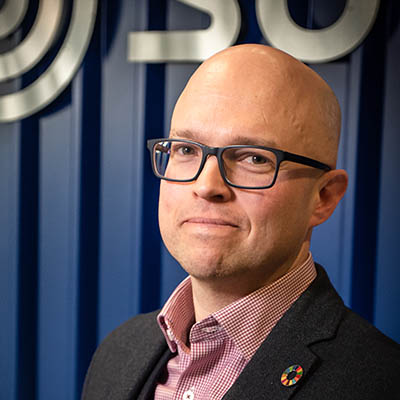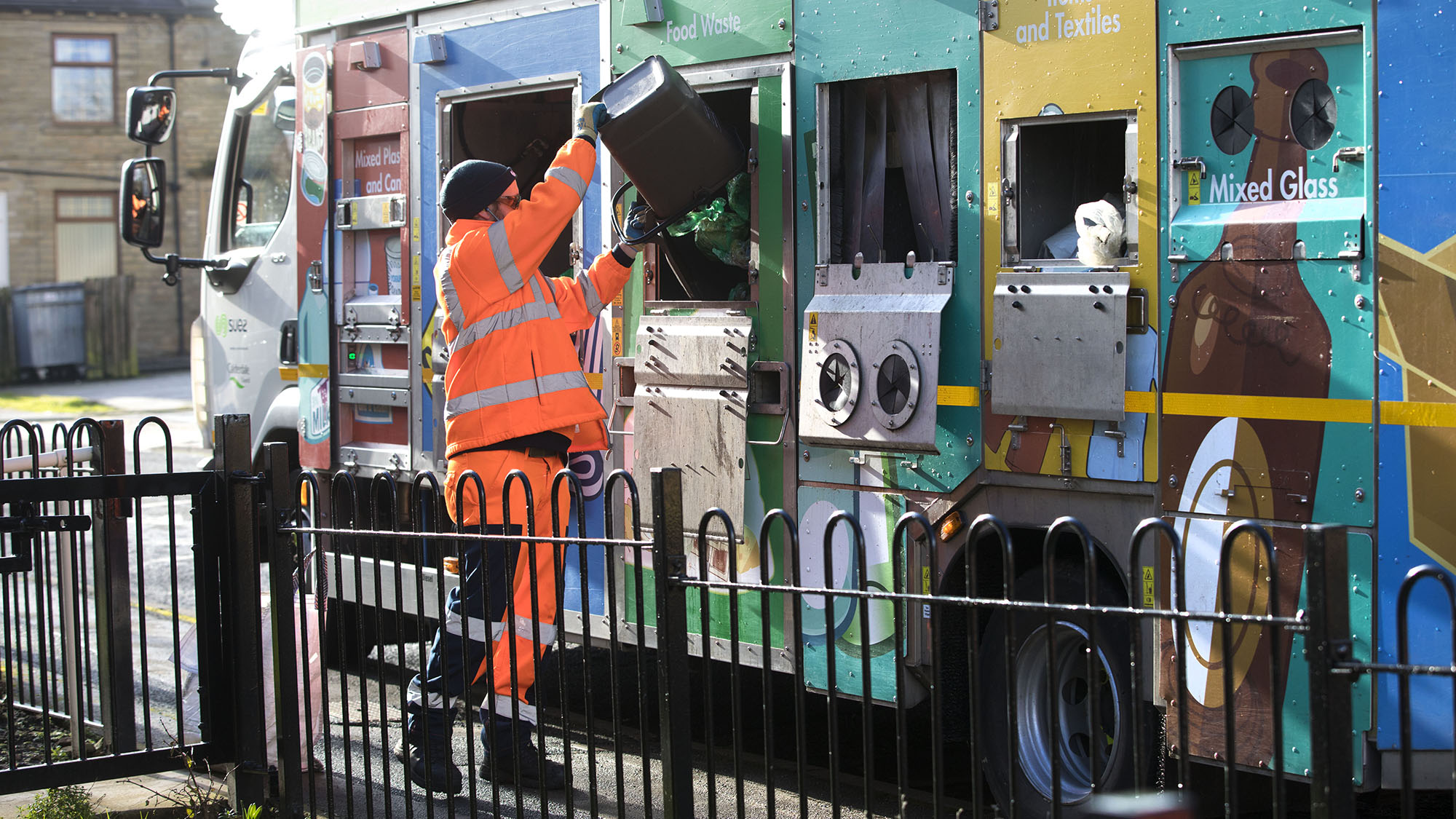The waste sector in 2021: Lessons learned from lockdown

I would like to take this opportunity, being my first blog of the year, to wish you all a Happy New Year, and I hope you had a safe and happy Christmas. However, what will the new year bring? If BREXIT wasn’t enough for us all to cope with, COVID continues to surprise us and not in a good way, with a new national lockdown and restrictions as tight as at any time back in the Spring of 2020 plus of course the schools closing and many of us becoming part-time teachers alongside our day jobs. With this in mind, it seems like a good time to reflect on how the sector fared during lockdown 2020 and consider if the sector is primed for what could be a tough first half to 2021.
So what’s new?
This time around there is no debate about the critical worker status of those employed in waste collection, treatment and management. HWRCs (or the tip) will remain open which should spread the load on municipal collections and ensure an ongoing flow of key materials such as WEEE and wood for the UK’s reprocessing sector. However, we are already seeing the vulnerability of some local authority collection services to staff absences, and with a new strain of COVID-19 proving to be more transmissible, we could see a large number of authorities restricting some collection services (bulky, plus green or garden initially) as they shuffle their resourcing pool. But as was the case throughout 2020, the flow of materials needing end treatment never dipped, and our energy recovery plants across the sector were often working beyond their normal capacity to help deal with the changing waste composition. Most significantly, the municipal origins of that material as so many of us learned to work at home. The only potential problem worth flagging right now relates to the roll-out of wide-scale COVID testing through lots of new sites, including schools. As the vaccination programme ramps up, just where will all the clinical wastes go and do we have the collection, storage and treatment capacity available for 2021?
E-events will be our lifeline in 2021
With a myriad of critical industry questions on my mind as the new year got underway, I used the quiet festive period to plan my diary for 2021, to make sure I was getting the right intel, insights and updates to keep me abreast of the rapidly changing landscape. Changes include post BREXIT regulation, protocols and targets, the impending consultation on EPR, DRS and consistent recycling collections, the aforementioned issue of clinical waste collection and treatment capacity, and the clamour for a green recovery and green jobs. There is so much happening to our sector, within our sector and around our sector that mapping your way through the key events of 2021 sounds like a good idea for any professional waste and resource manager to do in January 2021.
Now 2020 proved just how adaptable and flexible we all were as we embraced home working, online seminars, e-meetings and virtual events. With large face to face gatherings, conferences and events looking highly unlikely in 2021, the virtual event space is looking increasingly like being the lifeblood of our sector and many others, as we look to share good news stories, debate key issues, and consider policy reforms. I am also expecting an increase in the functionality and capability of some of the online conference platforms, to make networking and breakout sessions easier for everyone to participate in, which should not only enhance the experience but ensure we all turn up and engage!
Key events I have earmarked in my diary for 2021 are listed below. Some of these will be online reflecting the success of the webinars, e-roundtables, and Zoom debates that so quickly became the norm in 2020, whilst others are still considering hybrid options with some in person and some online content:
- CIWM’s new Festival of the Circular Economy (20 – 21 April 2021) – a new event looking to showcase great examples of circular business models, refill, repair and more generally waste prevention and waste reduction.
- CIWM Resourcing the Future (8 – 9 June 2021) – the annual event that looks at the big policy issues and attracts speakers from all parts of our sector as we look at what next etc.
- Scottish Resources Conference (7 – 8 September 2021) – the biggest event annually north of the border and likely to focus on DRS system development and implementation.
- RWM at the NEC (22 & 23 September 2021) – hopefully a welcome return for the exhibition and an opportunity to see a range of equipment being tested and join a range of workshops and debates.
- RECOUP’s Annual Conference (30 September 2021) – the biggest plastics focused event of the year, and a welcome opportunity for the value chain to discuss the big issues like DRS, EPR and consistent collections, plus reprocessing capacity and on-pack labelling etc.
- COP26 (November 2021) – when the eyes of the world will be on Glasgow as the UK hosts the UN’s 26th climate change conference and expectations are high about UK Government commitments around decarbonisation and net zero targets and timeframes.
As you can see, there is plenty of opportunity to get involved, listen, learn and share, so don’t miss out on these, and the many other events that will pop up over the course of the year – I might see you on a virtual platform sometime soon!
But the first of these big events, which is under 2 months away is of course ‘Energy from Waste Virtual’ which will be live on 10-12 March 2021. The overall theme of the conference concerns the role of waste to energy in the drive to carbon neutrality, with a range of sessions being planned to address heat networks, decarbonising EfW feedstocks, carbon capture & storage technologies and future policy opportunities and risks etc. I will be there to listen and learn, but I will also be chairing a session looking at the lessons learned by our sector during the COVID lockdowns of 2020. So I thought I would take this opportunity and test a few ideas with you in advance of the event.
Reflecting on the waste sector’s success during lockdown 2020
Thankfully we aren’t starting from scratch when looking back on our sector’s experiences in 2020, the CIWM were involved in a project with the University of Exeter looking at our sector’s resilience during the COVID-19 pandemic, which was released just before Christmas. For those of you interested in the work you can view the full report here (UK Waste Sector COVID-19 Response and Resilience Report) but I will summarise some of the headlines and the things that I personally feel were the key lessons learned and up on which we must base our plans for dealing with any more lockdowns in 2021.
It is clear that all of us found 2020 to be a testing and challenging year with unprecedented levels of uncertainty and at times clashing priorities. However, front line services remained operational throughout, albeit with some restrictions in bulky waste and green waste collections, and downstream treatment sites continued to deliver services under difficult working conditions, but they adapted. Staff from HWRCs and commercial waste services were often redeployed to support the mounting recycling and residual waste tonnages being generated at home as home working became the norm. That sense of being in it together continued as we re-opened the HWRCs often with restrictions on accepted materials or using online booking systems to manage usage, whilst sites evolved to ensure social distancing protocols were workable. Our operational sites quickly developed new shift patterns and hand-over procedures to ensure any contact between ‘teams’ (or bubbles as we later called them) was minimised whilst the IT systems were tested and proved to be up to the job of managing remotely, both teams and facilities. Much of this good work continues today across the UK, and I expect much of the best practice shown will linger around long after COVID has gone, as they have delivered many benefits for both staff, customers and managers alike.
A personal highlight for me was the levels of collaboration on show across the sector each and every day, the commitment to work together to keep front line services and sites operational and the spirit of ‘we can do this together’ that shone through. Weekly DEFRA hosted COVID catch-up calls with a range of stakeholders ensured we all had the same understanding from day 1. Whilst the commitment shown by the public to do the right thing and the open gratitude shown to the collection crews was at times overwhelming. COVID certainly helped put the waste sector back at the forefront of the public agenda, and for once in a more positive way, something for us to build upon in 2021 perhaps?
Looking ahead, what must we build upon?
But with us now back in lockdown, what could we do better to make sure the sector continues to deliver effectively in 2021? Well that will be a major theme of the workshop at the virtual EfW event, so I won’t share all my ideas with you right now (I need to make sure you sign up for the session after all), but as a starter for ten:
- increasing contingency planning with key stakeholders from across the sector to ensure we don’t get blockages that back up the system;
- better and more joined-up messaging to the public, to businesses and to the sector about what is needed, what is the priority and what we shouldn’t be doing; and
- more open and transparent data about waste airisngs, staff absences and other key metrics that impact service decisions, so we can make the best possible decisions at critical times.
Looking ahead, will there be another surge in household wastes and recyclables and if so, will we be able to cope? As spring arrives, a surge in green waste could be a problem for the system if we continue to have lots of people at home and the weather improves. Are we planning for this? With more COVID testing, we will see an increase in local clinical (COVID related) wastes, and do the clinical incinerators have the capacity (if not do the MSW EfWs have any capacity), and is the collection system in place for so many more decentralised testing points? Furthermore, what happens as the vaccinations roll-out beyond GP surgeries and hospitals, with more clinical wastes needing to be captured and treated appropriately. What is clear is that our sector is critical in the battle against COVID and in protecting human health, and it is key in helping to keep the UK economy afloat.
And that is why the EfW network conference in March is such a key event and will happen at such a critical time as we hopefully come out of lockdown and progress with our battle against COVID. It will be an excellent opportunity to reflect on all the big issues facing our sector, and to share our fears, and enjoy our successes together. So I look forward to seeing some of you online at this event, or others as the year rolls on. In the meantime have a positive start to 2021 and look forward, things are going to get better, but perhaps not in the short term.
